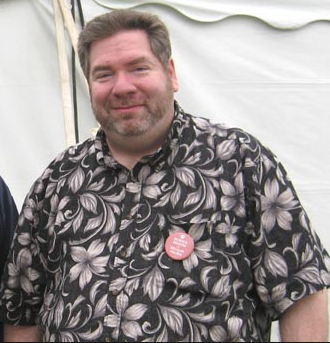A few thoughts I pull from that, having long followed him, and been stimulated by discussions philosophical and beyond on various websites and locations of his.
I've always thought of myself as a bit Europeanish, and his take on generalizations in temperament confirm that, in that I too have a sort of (muddled) optimism for the short term, but more worries about the longer term. I told him on Twitter that, per Yenta the Matchmaker's "oy we muddle," that Judaism (in Europe! I don't know about America) reflects similar ideas, or so it seems.
Many fellow Americans halfway confound me in this way, in fact. So does the attitude of "joining" as described first by de Tocqueville, even as Americans at the same time exulted about, and worked to further develop, "rugged individualism."
Back to other thoughts about Pigliucci.
One main point is his "seeking."
Raised Catholic, but apparently not too much more than a "C and E Catholic" (think about the top two religious days), he eventually moved to secular humanism. But, he wanted something "structured," so after moving more into philosophy, became what I'll call a Neo-Stoic. It's "neo" in the sense that surely for Massimo, and I think that for most devotees, it's been denatured of things like the Logos as a literal metaphysical entity.
I will confess that, 30 years ago, within Christianity, I had an eye for Stoicism. Today, things like behavioral psychology have shown me that human nature is far more irrational than Stoicism would have us believe. Quantum mechanics has shown the same about the universe lacking anything close to a quasi-logical structure, too. We've talked about this. I'm not the only one with a different take than him. But the talks have always been friendly.
It's also interesting to find that he was looking at Buddhism, too. I've noted strongly and repeatedly in these pages that Buddhism is, indeed, a religion. To make it not one takes a lot more denaturing than does Stoicism, and it's then arguable that what you have isn't Buddhism anymore. To be honest, Massimo, that one surprised me to the point of being semi-stunned.
Now, something that would call itself (neo) Stoicism could "denature" itself as much as what some people call (wrongly) Buddhism, by tossing out not only an actual Logos, but the idea of an ordered universe in general and a semi-rational humanity in particular. That said, I would no more call that Stoicism, even with a "neo," than I would call what Robert Wright, Stephen Batchelor and BuJews peddle Buddhism. You're really more in the vicinity of a personal psychology adapted from cognitive behavioral therapy or rational emotive therapy. Why not just call it such? (I could accept RET as a psychologically based "structure," but CBT comes off as ... too Stoic-like, especially without an "E"!)
Massimo did note back, via Twitter, that others than Wright (and Batchelor) for that matter, have made denaturing Buddhism a project. True. But, I think he may recall that I've carefully used adjectives, for sayings like "Buddhistic" or "Buddicizing" humanism or whatever. I haven't been fully accurate on parallels elsewhere, but Christian humanists don't claim to be peddling a truly non-religious philosophy of life, either. So, in that sense, I haven't been INaccurate on language either.
Finally, one small side note: A fair amount of people who believe in elements of pseudoscience aren't necessarily religious, or at least not driven primarily by religious considerations. Antivaxxerism comes immediately to mind.
In any case, the amateur semi-philosopher has appreciated the stimulations the professional has provided both inside and outside the realm of philosophy.



